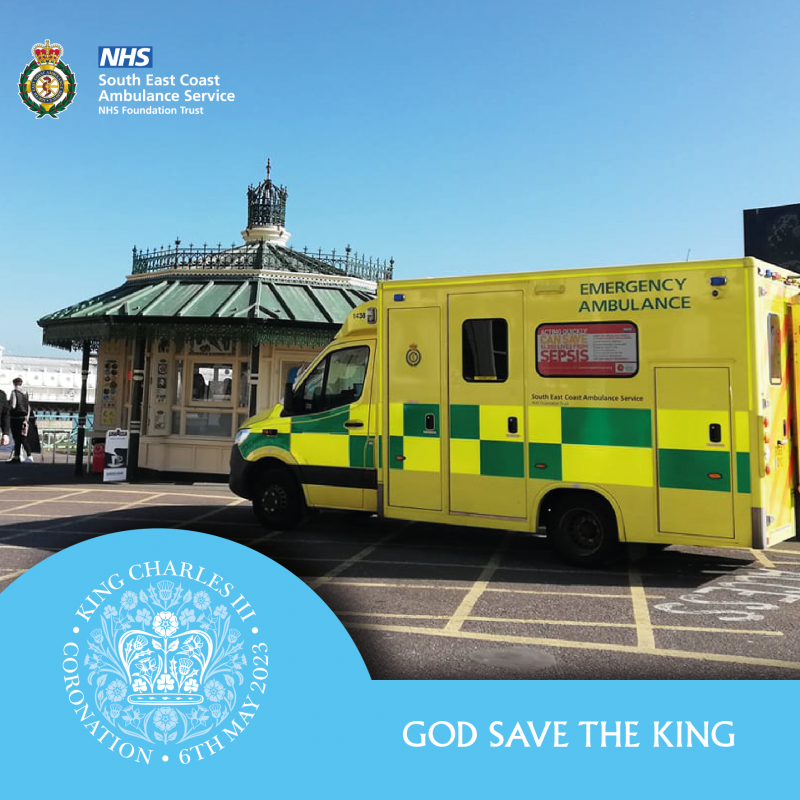 South East Coast Ambulance Service NHS Foundation Trust (SECAmb) is encouraging people to celebrate the historic King’s Coronation bank holiday weekend safely.
South East Coast Ambulance Service NHS Foundation Trust (SECAmb) is encouraging people to celebrate the historic King’s Coronation bank holiday weekend safely.
It is also reminding people of the importance of using its services wisely by only dialling 999 in the event of a serious emergency. By making use of alternatives for help and advice when it’s not an emergency, including visiting NHS 111 Online at 111.nhs.uk, the public can help reduce the demand on SECAmb’s services.
People can also help the both the 111 and 999 service by ensuring any required repeat prescriptions are ordered and collected ahead of the three-day weekend and that they have useful household medicines in stock and are aware of local pharmacy opening times.
Anyone who has organised a street party is asked to ensure emergency access is maintained.
Trust staff and volunteers will be working hard across the weekend to respond to everyone who needs help, while prioritising the most seriously ill and injured patients.
SECAmb Executive Director of Operations, Emma Williams, said: “As with any bank holiday the public can really help us manage demand by using our service wisely.
“It’s vital 999 is only called in the event of an emergency so that we are best placed to help those people who really need us, such as patients with chest pain, who are unconscious or who are bleeding heavily.
“Of course, we want people to enjoy such a historic event but everyone can really help us by being sensible and remembering the alternatives to 999, including NHS 111, if they’re not facing an emergency.
“We also ask anyone who is having a street party ensures easy access is maintained for all emergency services.
“I’d like to thank all our staff and volunteers who will be working hard across the weekend to respond to everyone who needs us.”
When to call 999:
If you think a patient is suffering from one of the following
you must dial 999 for an ambulance:
- heart attack (e.g. chest pain for more than 15 minutes)
- sudden unexplained shortness of breath
- heavy bleeding
- unconsciousness (even if the patient has regained
consciousness) - traumatic back/spinal/neck pain
You should also call for an ambulance if:
- you think the patient’s illness or injury is
life-threatening - you think the illness or injury may become worse, or even
life-threatening on the way to the hospital - moving the patient/s without skilled people could cause further
injury - the patient needs the skills or equipment of the ambulance
service and its personnel
